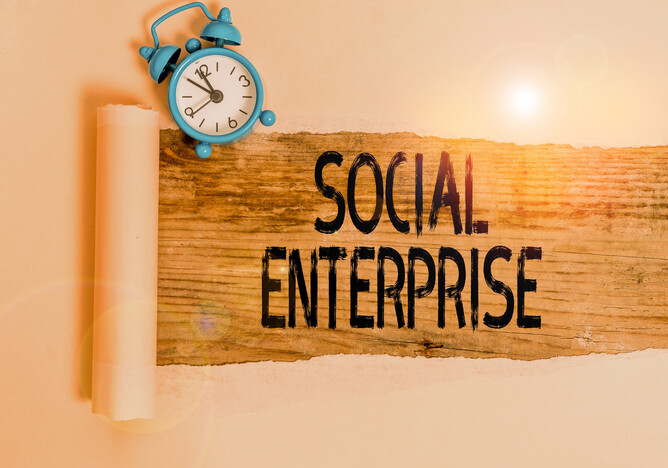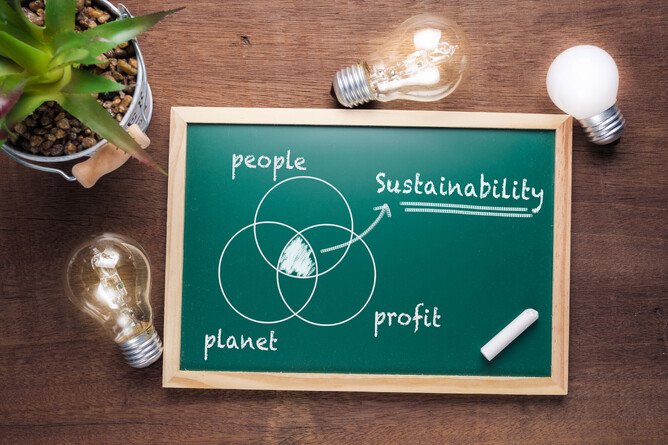Introduction
Social enterprises are businesses that are changing the world for the better. They exist to achieve a social mission such as providing healthcare, creating jobs or advancing education.
Although profits may not be the main motivator, like traditional businesses, social enterprises will aim to make a profit but it’s what they do with their profits that sets them apart. A social enterprise will reinvest it's profits or, it could donate them to create positive social change. Social enterprises are part of the fabric of our community and they include cafes, bakeries, community centres, health care providers, theatres, therapists and banks among many others. Sustainable income is what sets a social enterprise apart from a traditional charity which relies on donations or grants to achieve it's objectives, however some charities are also social enterprises.
By selling goods and services in the open market, social enterprises create employment and reinvest their profits back into their business or the local community. This allows them to tackle social problems, improve people’s life chances, provide training and employment opportunities for those furthest from the labour market, support their communities and help the environment.
Social enterprises generally have:
- A clear social or environmental mission that is set out in its governing documents
- An independent business which earns more than half of its income through trading (or are working towards this)
- Are controlled or owned in the interests of its social mission
- They reinvest or give away at least half their surpluses/profit towards a social purpose
- Are transparent about how it operates and the impact that it has
Business Structures
A social enterprise can use any business structure, they can be a sole trader or a limited company or even a charity if they adhere to the principles above.
There is a legal form which was introduced for social enteprises which is a type of limited company that is regulated so that the business assets are protected from being sold privately, and, it can not deviate from it's social mission. This is a community interest company and more information can be found on the Community Interest Regular's website here and our blog here.
People, Planet, Profit
John Elkington coined the term "triple bottom line" (TBL) almost thirty years ago as a challenge to business leaders to rethink capitalism and we think its a good framework of explaining the impact a social enterprise can have. The TBL idea being that it offered a way forward where businesses learned to stop purely focussing on profit and to expand their focus to include the lives of people and the planet.
Triple bottom line is a sustainability framework that examines a business' social, environment, and economic impact. John Elkington suggests that success or failure on sustainability goals cannot be measured only in terms of profit and loss. It must also be measured in terms of the wellbeing of people and the health of our planet.
“People” considers employees and the wider community where a business works. Another way to look at “people” is, how much does a company benefit society? A social enterprise should pay fair wages and takes steps to ensure good working conditions.
Triple bottom line companies make an effort to “give back” to the community - acting to further the interests of others which in turn furthers the aims of the social enterprise.
"Planet" considers the environment - businesses that harm the environment are generally made to pay reparations to put that right and the affect of the TBL indicates that an organisation tries to reduce its ecological footprint as much as possible. These efforts can include reducing waste, investing in renewable energy, managing natural resources more efficiently, and improving logistics.
"Profit" considers that profit isn't diametircally opposed to people or planet but is a necessary part of ensuring the sustainability of the enterprise.
The Challenges
Running a social enterprise is not easy. Your business will have to compete with both charities and purely commercial businesses. It involves all of the same steps as running a normal business taking care of cashflow, sales and marketing, managing staff and in addition trying to hit a social mission.
Therefore as a social entrepreneur you must be prepared to be resilient, able to balance a multitude of tasks, and – as your business is advertising itself as having a ‘social mission’.
Your Why
This has to be your first and most important question to answer. Either the business emerges from a need to serve the society in some way, and have a positive impact on the society, or there is a business idea that can be developed into a social enterprise by bringing in an ethical and positive dimension to it. Either way, the will to do good and help the community has to be the ethos that the venture is grounded in. Usually it stems from a personal story, a passion or a cause very close to the heart.
It is important to have a clear sense of mission. Think about who will it benefit, what difference will it make, and how are you going to go about it? It helps to determine the level of social impact in the short and long term and how it will be measured and evaluated. This will also help in reaching the right audience and identifying your marketing and networking strategies.


